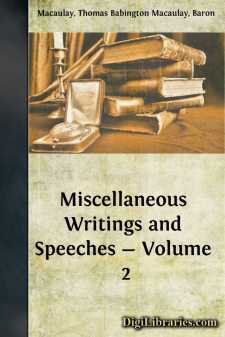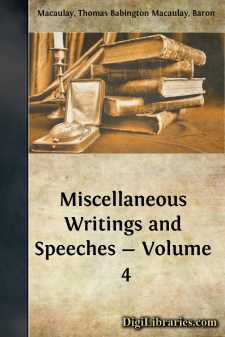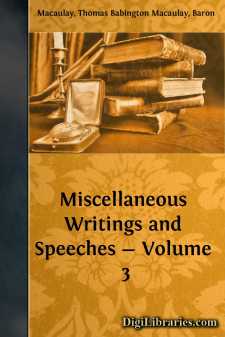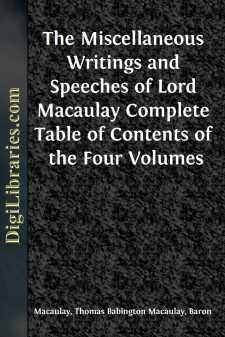Categories
- Antiques & Collectibles 13
- Architecture 36
- Art 48
- Bibles 22
- Biography & Autobiography 813
- Body, Mind & Spirit 142
- Business & Economics 28
- Children's Books 17
- Children's Fiction 14
- Computers 4
- Cooking 94
- Crafts & Hobbies 4
- Drama 346
- Education 46
- Family & Relationships 57
- Fiction 11829
- Games 19
- Gardening 17
- Health & Fitness 34
- History 1377
- House & Home 1
- Humor 147
- Juvenile Fiction 1873
- Juvenile Nonfiction 202
- Language Arts & Disciplines 88
- Law 16
- Literary Collections 686
- Literary Criticism 179
- Mathematics 13
- Medical 41
- Music 40
- Nature 179
- Non-Classifiable 1768
- Performing Arts 7
- Periodicals 1453
- Philosophy 64
- Photography 2
- Poetry 896
- Political Science 203
- Psychology 42
- Reference 154
- Religion 513
- Science 126
- Self-Help 84
- Social Science 81
- Sports & Recreation 34
- Study Aids 3
- Technology & Engineering 59
- Transportation 23
- Travel 463
- True Crime 29
Miscellaneous Writings and Speeches - Volume 2
Categories:
Description:
Excerpt
"The Poetical Works of John Dryden". In 2 volumes.
University Edition. London, 1826.
The public voice has assigned to Dryden the first place in the second rank of our poets,—no mean station in a table of intellectual precedency so rich in illustrious names. It is allowed that, even of the few who were his superiors in genius, none has exercised a more extensive or permanent influence on the national habits of thought and expression. His life was commensurate with the period during which a great revolution in the public taste was effected; and in that revolution he played the part of Cromwell. By unscrupulously taking the lead in its wildest excesses, he obtained the absolute guidance of it. By trampling on laws, he acquired the authority of a legislator. By signalising himself as the most daring and irreverent of rebels, he raised himself to the dignity of a recognised prince. He commenced his career by the most frantic outrages. He terminated it in the repose of established sovereignty,—the author of a new code, the root of a new dynasty.
Of Dryden, however, as of almost every man who has been distinguished either in the literary or in the political world, it may be said that the course which he pursued, and the effect which he produced, depended less on his personal qualities than on the circumstances in which he was placed. Those who have read history with discrimination know the fallacy of those panegyrics and invectives which represent individuals as effecting great moral and intellectual revolutions, subverting established systems, and imprinting a new character on their age. The difference between one man and another is by no means so great as the superstitious crowd supposes. But the same feelings which in ancient Rome produced the apotheosis of a popular emperor, and in modern Rome the canonisation of a devout prelate, lead men to cherish an illusion which furnishes them with something to adore. By a law of association, from the operation of which even minds the most strictly regulated by reason are not wholly exempt, misery disposes us to hatred, and happiness to love, although there may be no person to whom our misery or our happiness can be ascribed. The peevishness of an invalid vents itself even on those who alleviate his pain. The good humour of a man elated by success often displays itself towards enemies. In the same manner, the feelings of pleasure and admiration, to which the contemplation of great events gives birth, make an object where they do not find it. Thus, nations descend to the absurdities of Egyptian idolatry, and worship stocks and reptiles—Sacheverells and Wilkeses. They even fall prostrate before a deity to which they have themselves given the form which commands their veneration, and which, unless fashioned by them, would have remained a shapeless block. They persuade themselves that they are the creatures of what they have themselves created. For, in fact, it is the age that forms the man, not the man that forms the age. Great minds do indeed re-act on the society which has made them what they are; but they only pay with interest what they have received....












